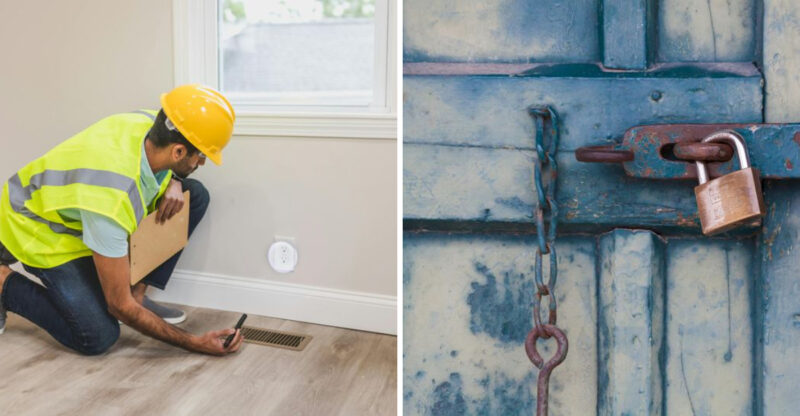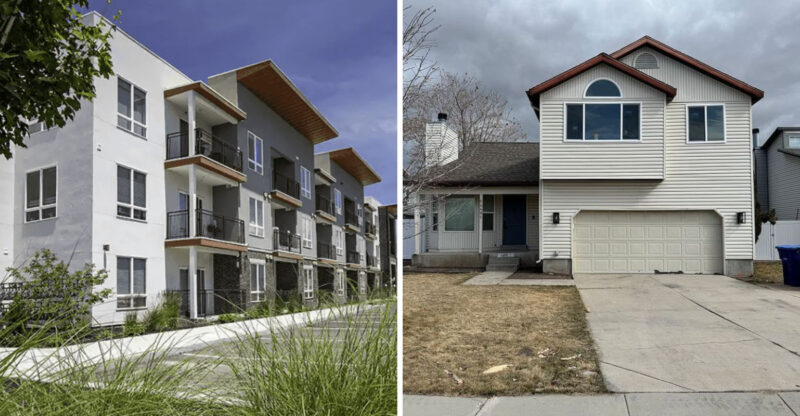7 Everyday Homeowner Habits That May Actually Be Illegal

Ever wonder if some of your regular home habits might actually be breaking the law? Many homeowners unknowingly commit infractions that could result in fines or worse.
From simple trash mistakes to DIY projects gone wrong, these everyday actions might be putting you on the wrong side of the law.
Keep in mind, laws and regulations vary widely depending on your city, state, or country, so not every example may apply to your situation.
1. Unpermitted Renovations
Thinking of knocking down that wall or adding a new bathroom? Without proper permits, your DIY renovation could be completely illegal. Even seemingly minor changes like installing new electrical outlets or moving plumbing fixtures typically require official permission.
The consequences can be severe from forced demolition of your work to significant fines. When selling your home, unpermitted work can cause failed inspections, reduced property values, and even complicate insurance claims if something goes wrong.
Always check with your local building department before starting projects. The permit process may seem annoying, but it ensures your renovations meet safety standards and won’t cause headaches down the road.
2. Improper Pool Fencing
That backyard pool might be your summer oasis, but without proper fencing, it’s a legal liability. Almost every jurisdiction requires swimming pools to have adequate safety barriers to prevent accidental drownings, especially of children.
Typical regulations mandate fences at least 4-5 feet high with self-closing, self-latching gates. Some areas also require alarms on doors leading to pool areas. Violations can result in fines starting at several hundred dollars and increasing for continued non-compliance.
Beyond fines, improper pool fencing creates serious liability issues. If someone is injured or drowns in your unfenced pool, you could face devastating lawsuits and even criminal charges in cases of negligence. Never compromise on pool safety proper fencing protects both lives and your legal standing.
3. Overgrown Trees on Sidewalk
Those beautiful shade trees might be creating more than just aesthetic appeal they could be causing illegal obstruction. When branches hang too low over sidewalks or streets, they violate municipal codes designed to keep public pathways clear.
Most cities require 8 feet of clearance over sidewalks and 14-16 feet over streets. If your greenery blocks visibility at intersections or covers street signs, that’s another violation. Beyond fines (typically $100-500), you might be liable if your overgrown trees cause injury to pedestrians.
Regular pruning prevents these issues. If you’re unsure about proper maintenance, consult an arborist. For trees near power lines, contact your utility company instead of attempting dangerous trimming yourself. Remember that you’re responsible for maintaining trees on your property, even when they extend into public spaces.
4. Using Unlicensed Contractors
Hiring that handyman who offers cash-only deals might save money upfront but could cost you dearly in the long run. Working with unlicensed contractors is illegal in most states for major home improvements or specialized work like electrical, plumbing, or HVAC repairs.
The risks extend beyond legal issues. Unlicensed work typically lacks proper permits, insurance coverage, and may not meet building codes. If workers are injured on your property, you could be personally liable for their medical expenses since unlicensed contractors rarely carry worker’s compensation insurance.
Always verify contractor licenses through your state’s licensing board before hiring. Request proof of insurance and check references. While licensed professionals might charge more initially, they provide protection against the substantial legal and financial risks that come with cutting corners.
5. Unsafe Electrical Modifications
That DIY electrical project might save money, but without proper knowledge and permits, it creates both safety hazards and legal liability. Amateur electrical work commonly violates building codes and can invalidate your home insurance coverage.
Dangerous violations include overloaded circuits, improper wire gauges, missing junction boxes, and inadequate grounding. Beyond potential fines from code enforcement, faulty electrical work causes approximately 51,000 home fires annually in the United States, resulting in hundreds of deaths and over a billion dollars in property damage.
For any electrical work beyond simple lamp repairs or outlet cover replacements, hire licensed electricians who understand current codes. They’ll ensure your home remains safe, legal, and properly insured. The cost of professional installation is minimal compared to the potential consequences of electrical fires or electrocution from improper wiring.
6. Ignoring HOA Rules
Those strict Homeowners Association rules might seem excessive, but ignoring them can have serious legal consequences. When you purchase a home in an HOA community, you legally agree to abide by their covenants, conditions, and restrictions (CC&Rs).
Violations commonly include unapproved exterior modifications, improper landscaping, unauthorized vehicle parking, or running home businesses against regulations. Penalties typically start with warning letters but can escalate to fines, liens on your property, loss of community privileges, and even foreclosure in extreme cases.
Always review your HOA documents before making changes to your property. Submit proper applications for approval when required, attend association meetings to stay informed, and communicate proactively with your board about potential issues. Following the rules helps maintain community standards and avoids costly disputes.
7. Unauthorized Short-Term Rentals
Listing your spare room or vacation home on rental platforms without proper permits could land you in serious legal trouble. Many cities have enacted strict regulations on short-term rentals to protect housing availability and neighborhood character.
Violations often result in substantial fines sometimes thousands of dollars per day of illegal operation. Some municipalities require business licenses, safety inspections, and tax collection for short-term rentals. Others ban them entirely in certain zones.
Before listing your property, research local regulations thoroughly. Contact your city’s planning department, check HOA rules if applicable, and verify insurance requirements. You’ll also need to report rental income on your taxes. While the extra income from short-term rentals can be attractive, operating illegally carries financial and legal risks that far outweigh potential profits.






